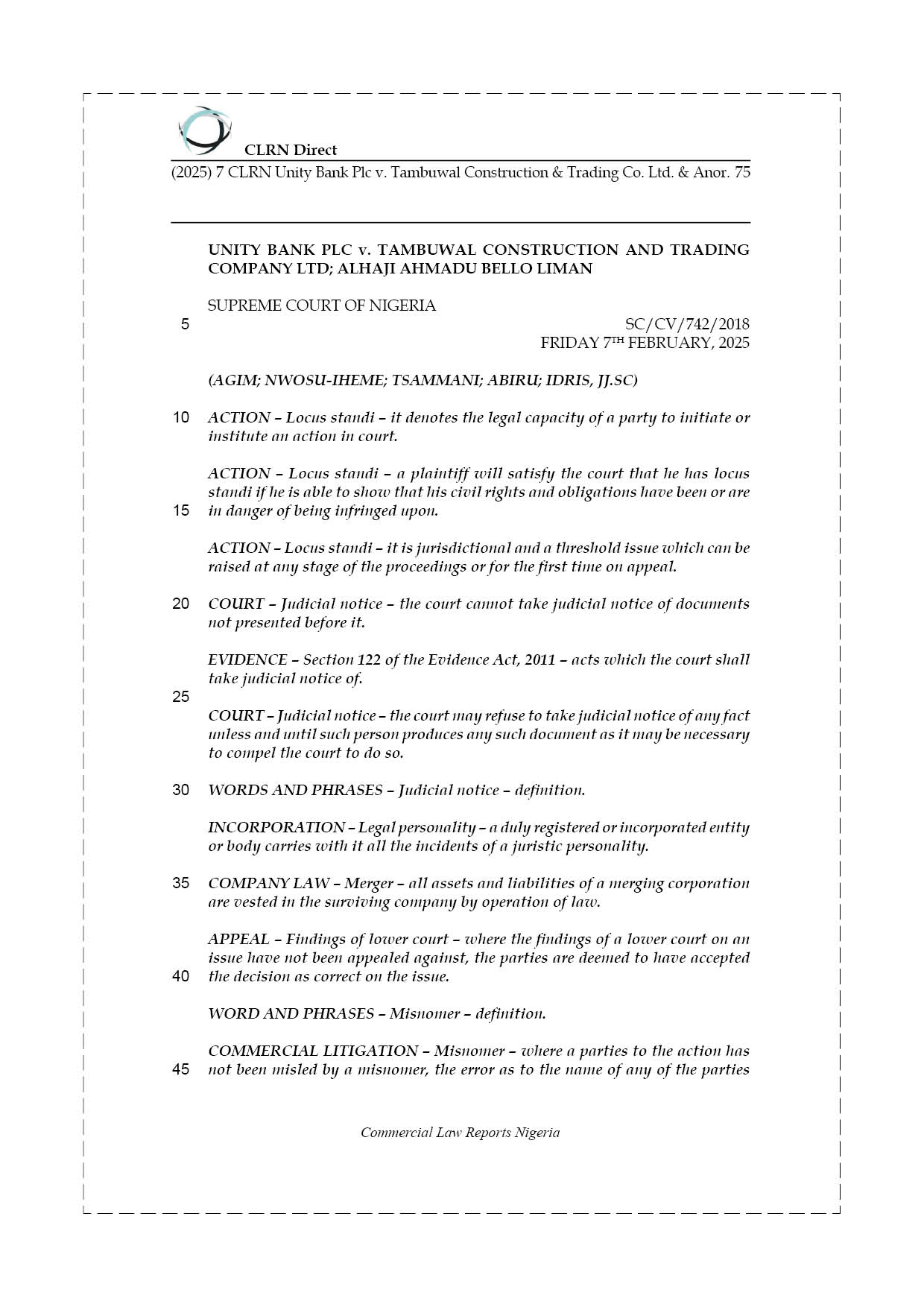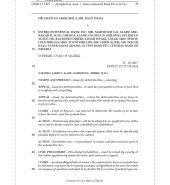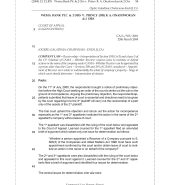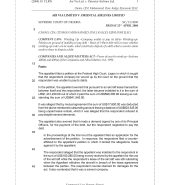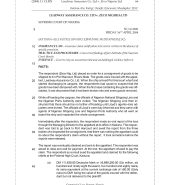UNITY BANK PLC v. TAMBUWAL CONSTRUCTION AND TRADING CO. LTD & ANOR.
₦1,000
In Stock
Facts:
Unity Bank Plc, the appellant instituted an action at the High Court against the respondents, initially naming the 1st respondent as Tambuwal Construction Company Ltd, but later amending it to Tambuwal Construction and Trading Company Ltd. The appellant claimed a debt of ₦61,214,693.11, interest at 21% per annum from July 29, 2005, until judgment, and 10% per annum post-judgment, along with costs.
The appellant alleged that the 1st respondent maintained accounts at the defunct Bank of the North Ltd and was granted an overdraft of ₦1,000,000 in 1992. In 1993, a further loan of ₦10,000,000 was granted and secured by the 2nd respondent, who provided a personal guarantee and mortgaged landed properties. The respondents allegedly defaulted, leading to accrued interest and the final debt sum. The respondents denied the loan transaction and asserted that only account number 400001403 existed in the name of Tambuwal Construction Company Ltd, not the amended name. They also denied the 2nd respondent’s role as guarantor. In reply, the appellant contended that the loan originated from Bank of the North Ltd, but following the Federal Government’s banking consolidation policy, a court-approved merger vested the loan in Unity Bank Plc.
At trial, the appellant presented one witness and tendered six exhibits. Documents tendered showed the loan transactions and communications were in the name of Tambuwal Construction and Trading Company Ltd, though the account statement (exhibit P6) bore the name Tambuwal Construction Company Ltd. Despite objections, the trial court admitted exhibit P6 and gave judgment in favour of the appellant, taking judicial notice of the bank consolidation process.
On appeal, the Court of Appeal held that the appellant failed to prove the bank merger since no supporting documents were tendered. It ruled that judicial notice could not substitute for evidence of the merger and consequently found that the appellant lacked locus standi. The appellate court also held that exhibit P6 was inadmissible due to discrepancies in the account name and faulted the trial court for relying on it. The appeal was allowed, and the trial court’s judgment was set aside. Dissatisfied, the appellant appealed to the Supreme Court.
